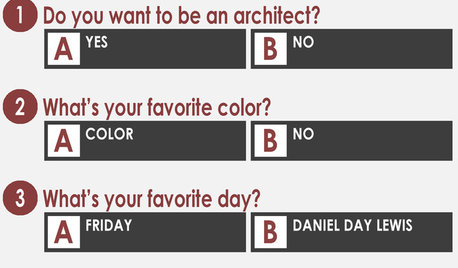Black vulture question
tomtuxman
19 years ago
Featured Answer
Sort by:Oldest
Comments (12)
Elly_NJ
19 years agonc_wildlife
15 years agoRelated Professionals
Brentwood Landscape Architects & Landscape Designers · Alamo Landscape Contractors · Cincinnati Landscape Contractors · Crystal Landscape Contractors · Deerfield Beach Landscape Contractors · El Reno Landscape Contractors · Mastic Beach Landscape Contractors · Westford Landscape Contractors · Crowley Landscape Contractors · Roy Driveway Installation & Maintenance · Wauconda Driveway Installation & Maintenance · Denton Swimming Pool Builders · Englewood Swimming Pool Builders · West Palm Beach Swimming Pool Builders · West Puente Valley Swimming Pool BuildersElly_NJ
15 years agofrank_il
15 years agofrank_il
15 years agonovice_2009
15 years agoUser
15 years agocjc45
15 years agonovice_2009
15 years agoladykatieking_yahoo_com
14 years agoUser
14 years ago
Related Stories

KITCHEN DESIGN9 Questions to Ask When Planning a Kitchen Pantry
Avoid blunders and get the storage space and layout you need by asking these questions before you begin
Full Story

COFFEE WITH AN ARCHITECTA Quiz for Architects in Question
Should you trade in your T-square for a barista tray? Answer a few simple questions to find out
Full Story
FEEL-GOOD HOMEThe Question That Can Make You Love Your Home More
Change your relationship with your house for the better by focusing on the answer to something designers often ask
Full Story
Design Dilemmas: 5 Questions for Design Stars
Share Your Design Know-How on the Houzz Questions Board
Full Story
Easy Green: 6 Must-Answer Questions Before You Buy
Thinking about buying ecofriendly furniture? For a truly environmentally conscious home, ask yourself these questions first
Full Story
REMODELING GUIDES9 Hard Questions to Ask When Shopping for Stone
Learn all about stone sizes, cracks, color issues and more so problems don't chip away at your design happiness later
Full Story
LIGHTING5 Questions to Ask for the Best Room Lighting
Get your overhead, task and accent lighting right for decorative beauty, less eyestrain and a focus exactly where you want
Full Story
GREEN BUILDINGConsidering Concrete Floors? 3 Green-Minded Questions to Ask
Learn what’s in your concrete and about sustainability to make a healthy choice for your home and the earth
Full Story
Today's Question: TV Fireplace Dilemma
Should the TV Go Above the Fireplace — or Not? Have Your Say!
Full Story






rhizo_1 (North AL) zone 7